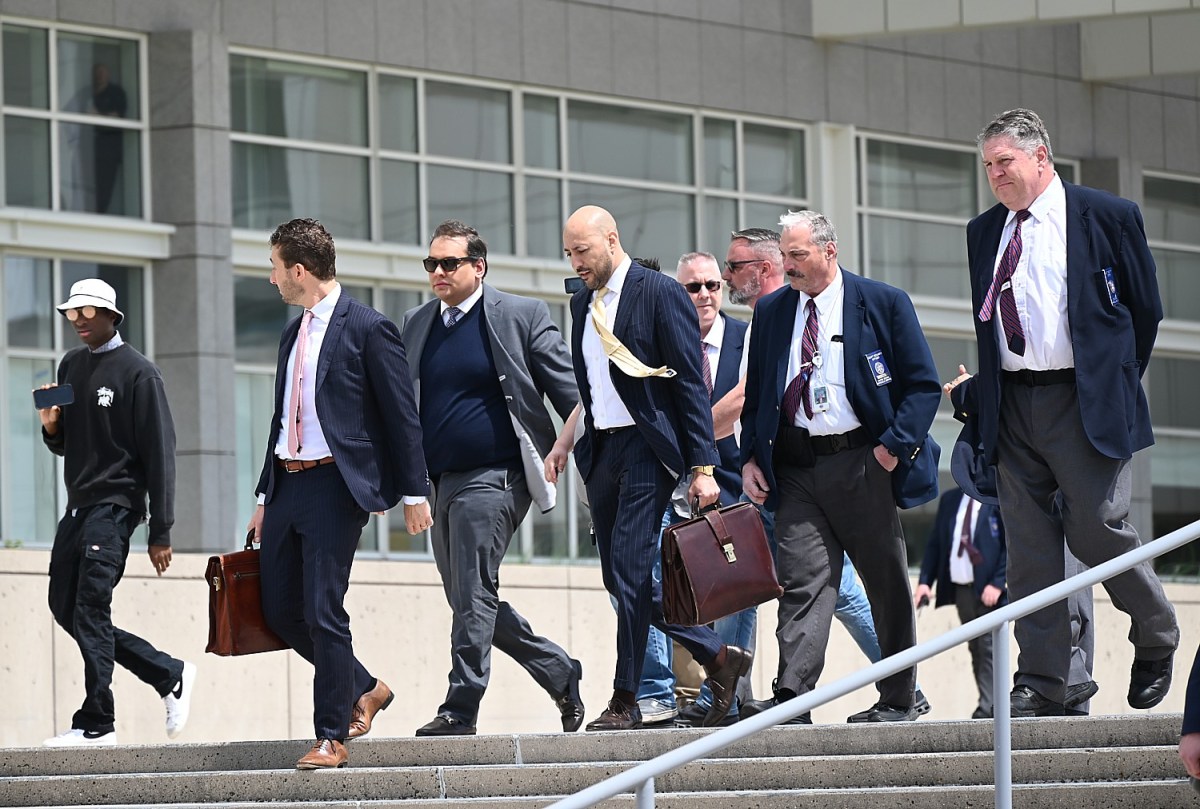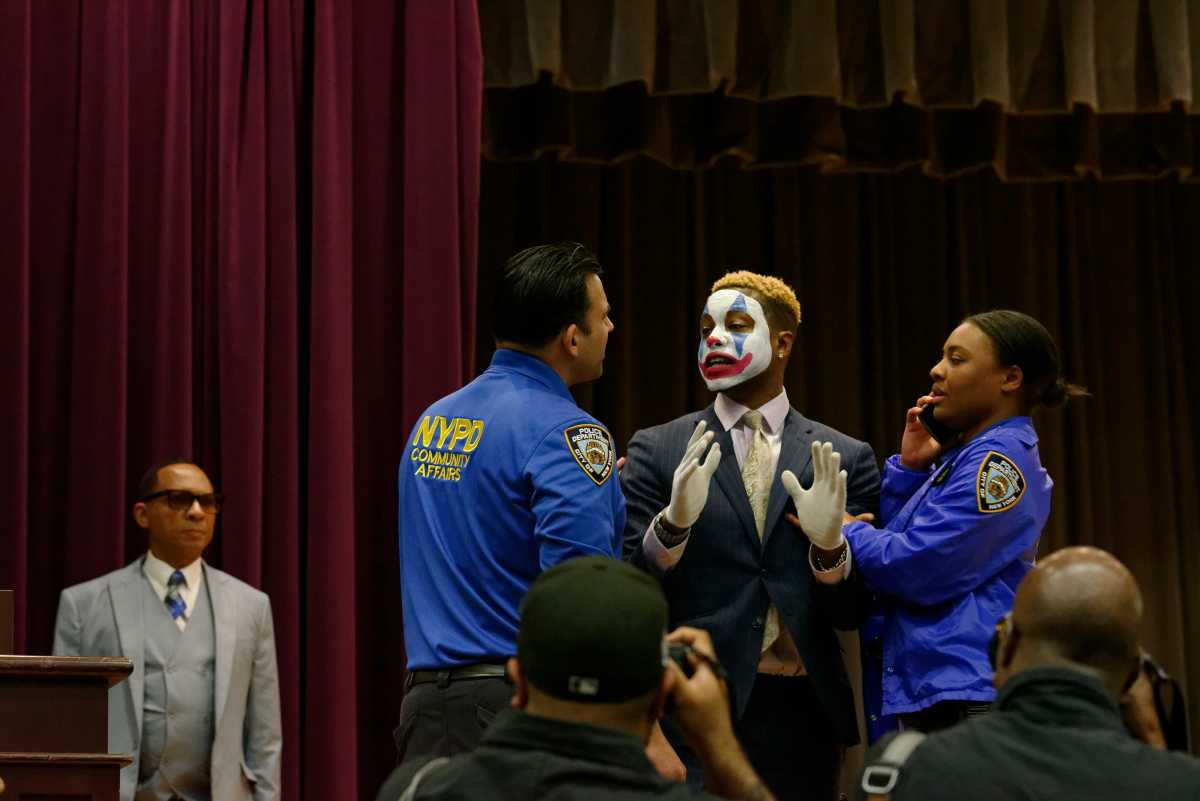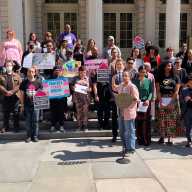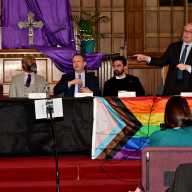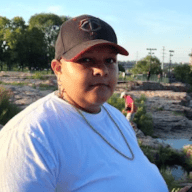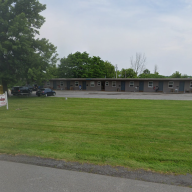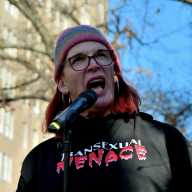By almost all accounts, the New York City schools took a step forward as classes began this month in finally promulgating a regulation to address the problem of bullying.
But with the ink barely dry on the new regulation, some of the strongest advocates for the move say it falls short of what is required by the Dignity for All Students Act (DASA) enacted by the City Council in 2004 and ignored by Mayor Michael Bloomberg and Schools Chancellor Joel Klein until pressure was exerted this year by Sikh leaders whose children were being persecuted by other students.
Advocates critical of mayor's new schools initiative offer backstory
Under the regulation, all one million students were supposed to have received a “Respect for All” brochure on the new regulation explaining it and advising how they or staff who witness bullying can report it. Every school is supposed to designate a point person to deal with the issue. All principals have to come up with a plan for how the regulation is going to be implemented, including training all staff on it.
The New York Civil Liberties Union (NYCLU) issued a release outlining a host of concerns it has ranging from the refusal of the Department of Education (DOE) to submit the regulation to public review to the lack of detail about “what sort of training or annual trainings will be mandated” to “an over-reliance on punitive measures.”
Pauline Park, the co-founder of the New York Association for Gender Rights Advocacy (NYAGRA) and a longtime DASA advocate, said, “I hope the regulation proves effective, but I have serious doubts. To work, they have to get to the heart of the matter – how students interact with each other and the fact that we have an epidemic of bias-based harassment in schools.”
Brian Ellner, an out gay senior counselor to the chancellor who played a major role in drafting the regulation, said, “This is as strong or stronger than DASA” and is all about “creating a tolerant, respectful, safe, and supportive environment for all students.”
City Council Speaker Christine Quinn stood with Bloomberg and Klein last week in announcing the new regulation and praised the move. Asked what DASA would have done that the regulation does not, her office said in an e-mail that DASA also covered “bias-based harassment, included family composition or circumstances, economic circumstances, physical characteristics, school performance, or any other characteristic or reason that has or would reasonably have the effect of substantially interfering with a student's educational performance.”
In addition, under DASA, “DOE was required to specify that harassment was a basis for granting a school transfer; employee training was to occur on a regular basis;” and there were “somewhat different reporting requirements.”
But Laura Gordon, a spokeswoman for Quinn, said, “As she said at the press conference, this regulation tells parents that they do have a place to turn to” when their children are being bullied. It really is a big step forward.”
The full text of the new chancellor's regulation is available online at http://docs.nycenet.edu/docushare/dsweb/Get/Document-315/A-832%20%209-3-08%20Final.pdf. Any student, staff, or parent seeking further information can send an e-mail to RespectforAll@schools.nyc.gov.
Last year, the NYCLU formed the DASA in Action! Coalition with the Sikh Coalition, Asian American Legal Defense and Education Fund, the Coalition for Asian American Children and Families, NYAGRA, and others in a renewed push for implementation of the City Council law. NYCLU advocacy director Udi Ofer said in a release, “Impacted communities should have been given an opportunity to provide feedback on the regulation before it was made final,” citing city and state law regarding public comment periods.
Park said advocates were brought in to review the regulation, but were not shown it until they promised not to share it with those outside the meeting. She also said that the DOE did not want the NYCLU involved in the meeting, but that the other coalition partners insisted on it.
Margie Feinberg, a spokesperson for DOE, said, “We are not subject to the City or State Administrative Procedures Act because our rule-making authority is under state education law which gives the chancellor the power to create and implement regulations for the schools.” While DOE is required to have public hearings on such things as their disciplinary code, she said, there is no such requirement for regulations.
City Councilman Alan Gerson, DASA's lead sponsor, said the regulation “is a huge step forward, but my job is to keep pushing.” He said he was formulating a letter to the chancellor outlining the need for more resources to combat bullying and asking him to “flesh out the training element,” noting that DASA calls for “prevention and response.”
Gerson did not conclude from Bloomberg's comments last week that he understands how pervasive the problem of bullying is. The councilman said the schools have to address “the pecking-order phenomenon” under which students are not just picked on because of big issues like anti-gay bigotry, but because they are “fat, skinny, tall, short.”
“I don't think he gets it,” Gerson said of the mayor. “What's required is a frontal attack on a part of youth culture.”
Ellner was insistent that this program will be comprehensive and will address the culture that fosters bullying. “Every school has to come up with a plan and we have to approve it,” he said. The plans and training required are not, however, standardized, a concern of Park, who said that trainers may not be particularly skilled at dealing with LGBT issues. On that point, Ellner replied, “We believe in principal empowerment,” not making all schools do things the same way. He said the bottom line is that all plans “must protect students.”
The City Council never did take legal action to compel the mayor to enforce DASA, gun shy after losing a Court of Appeals decision that upheld his right not to enforce the Equal Benefits Bill that would have required contractors doing business with the city to offer domestic partner benefits on par with whatever spousal benefits they provide.
Ofer of the NYCLU said, “The mayor has a legal obligation to enforce DASA.” He said the group is “exploring what the legal options are.”
In a release from the Sikh Coalition, Sonny Singh, a community organizer with the group, said, “While this regulation is an important step, it is only half the battle,” vowing to “continue to work with the DOE to secure new changes and enhancements to the regulation.”
Alan Drexel, who just stepped down as chair of the New York Bar Association's LGBT Rights Committee and had worked on the issue for the past 20 months, wrote in an email, “My concern is that because of all the hype city officials are showering on it, the new measure, while somewhat helpful, may actually undermine public support for the truly comprehensive, sustained efforts needed to protect kids in schools, by fostering a perception of 'Mission Accomplished.' Unfortunately, that perception is way off the mark.”
Drexel echoed Gerson's concern about a lack of resources for the program and listed more ways in which it does not track DASA, including not covering bullying on school buses, not prohibiting bullying by employees, not specifying when incidents must be reported to the police, and not requiring annual public reporting for each school. “The Mayor's oral commitment to such reporting will not bind his or Chancellor Klein's successor,” he wrote.


